Objectives
Create a society where all people, including those with foreign connections, can live safely and securely together.
Policies
- Based on " Roadmap for the Realization of a Society of Harmonious Coexistence with Foreign Nationals" by the government of Japan,
JICA, with various tools and resources to partner with various stakeholders including domestic offices and Coordinators for International Cooperation across Japan, supports the activities of the national government, local governments, and NGOs in their efforts to build an inclusive society. - Roadmap for the Realization of a Society of Harmonious Coexistence with Foreign Nationals
- JICA will also explore ways in which people with experience in international cooperation can further contribute to the efforts to overcome challenges in building a more inclusive society such as lack of understanding towards diverse cultures and limited opportunities for foreign residents to learn Japanese.
- JICA promotes the responsible acceptance and protection of human rights of migrant workers by companies through support for JP-MIRAI in areas such as sharing of information with migrant workers, awareness-raising on "business and human rights," and the establishment of grievance mechanisms by private sectors.
JICA Activities
Solving issues in the community by connecting stakeholders
Assigning the Coordinator for International Cooperation for Foreign Human Resources and Inclusive Society

JICA leverages its strengths, including the knowledge, experience, and human connections that it has in relation to developing countries.
Since FY1996, in order to address issues in the local community, JICA has been placing Coordinator for International Cooperation as "JICA contact points in the community" in international associations, municipalities, and other partner organizations across Japan.
Starting in fiscal 2020, JICA has been assigning the Coordinators for International Cooperation responsible for foreign HRs and inclusive society.
The aim is to help local communities address challenges they face in accepting foreign HRs and promoting inclusive society.
Collaboration with local stakeholders
A model for supporting the acceptance of foreign residents in connection with " Regional Revitalization" - Kushiro Approach-
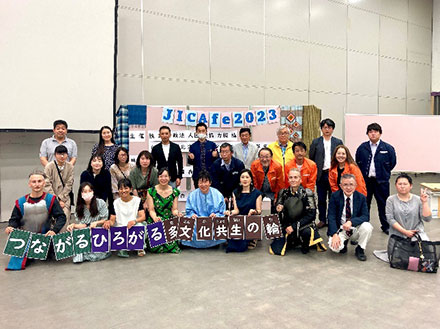
This model combines JICA's human resources and projects with various "Regional Revitalization " initiatives in Kushiro/Nemuro region to support the acceptance of foreign human resources and the creation of an inclusive society in the region.
JICAfe events and online salons, planned and implemented in cooperation with local governments and the Sapporo Immigration Services Bureau Kushiro Port Branch Office, brought together Japan Overseas Cooperation Volunteers, Local Vitalization Cooperation Volunteers, key foreign residents living in the community, and local organizations that are active in the region and provide opportunities for the local community members to understand and have greater interest in foreign residents in their own community.
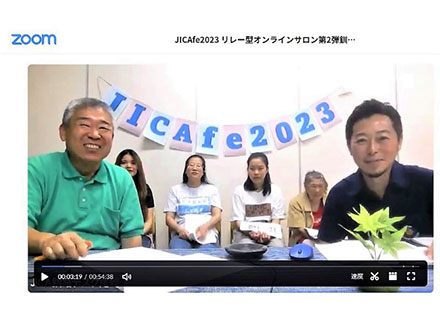
Improving local disaster preparedness with foreign residents to create an inclusive society.
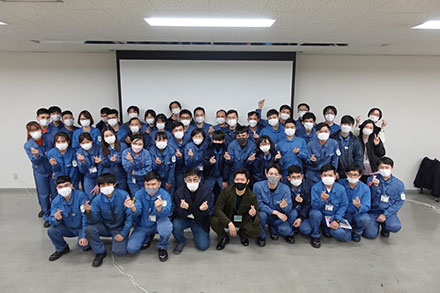
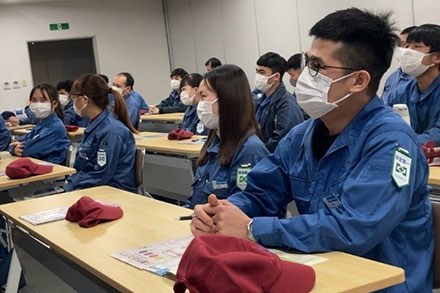
JICA conducted training programs on disaster prevention for Vietnamese people working and living in Japan, with the cooperation of companies to which they belong as employees and trainees.
In Japan, natural disasters such as earthquakes and typhoons occur frequently due to its location, topography, geology, weather, and other natural conditions.
The participants were instructed how to effectively collect information in multiple languages in the occurrence of disaster.
The training was held in cooperation with companies, local governments, the international associations, and local disaster prevention specialists. It aims to support establishment of mutual cooperation system in community including international residents in times of disaster.
Building Bridges with Nikkei Communities in Latin America: Nikkei Community Training (Nikkei Supporter)
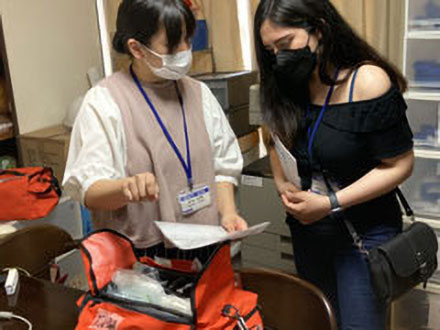
This program provides opportunities for Nikkei(Japanese emigrants and their descendants) from Central and South America to work as JICA trainees in Japanese cities with a high concentration of Nikkei and to develop their expertise through training at preschools, kindergartens, elementary and junior high schools, local governments, NGOs, companies, etc.
The program also supports Nikkei in Japan and contributes to the building of an inclusive society and regional revitalization of cities with a high concentration of Nikkei.
It is also expected to contribute to the development of the Latin American region after Nikkei trainees return to their home countries as a result of strengthened expertise of Nikkei themselves.
- JICA Yokohama Profile Page 7~Program to collaborate with Japanese Emigrants and Their Decendants~
Career support for culturally linguistically diverse children
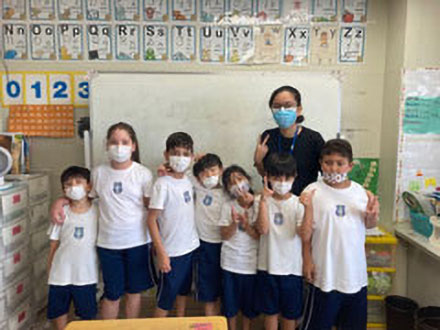
With the increase in the number of foreign HRs, the number of culturally linguistically diverse children is also increasing.
JICA is working with local governments, educational institutions, NGOs/NPOs, etc. to provide career support for children and youth with cultural and linguistical diversity.
In Hokkaido, an online seminar was held to encourage educators and others to think about what they can do in their respective positions, in their communities, and in their classrooms, in the face of the scatteredness of the areas in which they reside and their diversity.
In Yokohama, an education fair was held jointly with an NPO that has long been involved in supporting culturally linguistically diverse children and the Kanagawa Prefectural Board of Education. In addition to introducing the experiences of senior students and providing individual consultations, information was shared to help students learn about diverse career paths and design their paths.
JICA also conducted a survey and compiled a summary guidebook on the education systems and school cultures of 11 countries in Southeast Asia, South Asia, and Latin America, many of which are countries of origin for children enrolled in elementary and junior high schools in Kanagawa Prefecture.
In addition, JICA, building on its experience in supporting the development of textbooks and other teachers’ guidebook mainly for science and mathematics courses in developing countries, is sharing these materials widely both in Japan and abroad as "international public goods."




scroll